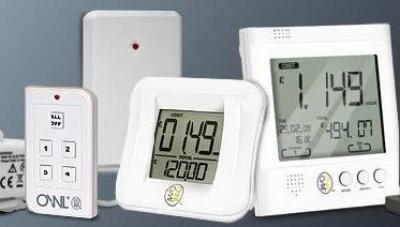Study: Smart Meters May Not Reduce Energy Use

Any energy-use reduction associated with smart metering depends heavily on social factors, say Oxford researchers
The use of smart meters to cut energy consumption is far from straightforward, and will depend on both business and social considerations, according to new research from the University of Oxford.
The research, carried out by Sarah Darby of the university’s Environmental Change Institute (ECI) and published in the journal Building Research and Information last week, found that a reduction of energy demand “did not flow naturally from improved billing information”.
The study examined how householders used feedback on their energy consumption with and without smart meters.
Smart meters are designed to improve the accuracy of energy billing. In some countries, including the UK, they are also designed to provide feedback to consumers, allowing them to form a more accurate picture of their own energy consumption, and thus make better-informed choices, in theory reducing their power consumption and the related carbon emissions.
Smart metering is also intended to facilitate the development of smart grids, which integrate the actions of all users connected to them in order to efficiently deliver sustainable, economic and secure electricity supplies.
Consumer habits
However, previous studies have shown that the technology on its own does not necessarily lead to changes in consumer habits, and the new study backed this up.
Darby’s research found that the technology must be accompanied by education in order to be effective.
 “There is the potential to use (advanced metering infrastructure) for demand reduction if there is a strong strategic intention to do so, and if the social support is there,” Darby said in the paper.
“There is the potential to use (advanced metering infrastructure) for demand reduction if there is a strong strategic intention to do so, and if the social support is there,” Darby said in the paper.
In a separate study in the same journal, Delft University of Technology academics found that the short-term benefits of smart metering did not necessarily translate into longer-term changes in habits.
The Dutch study found that smart meters initially provided electricy consumption savings of 7.8 percent after four months, but this was not sustained over the following 11 months.
“Participants who kept the monitor (…) did not manage to sustain their electricity savings any better than those without a monitor,” the researchers wrote.
The research also found that the results varied with different social groups.
“A second finding is that certain groups of people seem more receptive to energy-saving interventions than others. A ‘one-size-fits-all’ approach for home energy monitors cannot be justified.”
‘Hasty’ rollout
The British government is looking to accelerate the rollout of smart metering to all UK homes and small businesses, aiming to achieve this target earlier than the 2020 deadline set by the previous Labour government.
However, earlier this month analyst firm Ovum called the plans “hasty” and called for better support for smart metering standards.
Smart meter maker Sentec on Tuesday warned that smart meters need better future-proofing to avoid the danger of speedy obsolescence.
“The speed with which market requirements are shifting worldwide demonstrates the importance of fully future-proofed meters, which will be in a position to support innovation elsewhere,” said Sentec chief executive Mark England in a statement. He made the comments ahead of the Smart Metering Europe conference in Vienna later this month.
The UK government’s emphasis on consumer engagement will be crucial to the success of smart metering, according to Ovum lead analyst Stuart Ravens.
“Not one kWh of energy will be saved by installing smart meters alone – it is only when consumers start engaging with their smart meters and modifying their consumption patterns that the energy efficiency goals of smart metering will be met,” Ravens said in a statement.